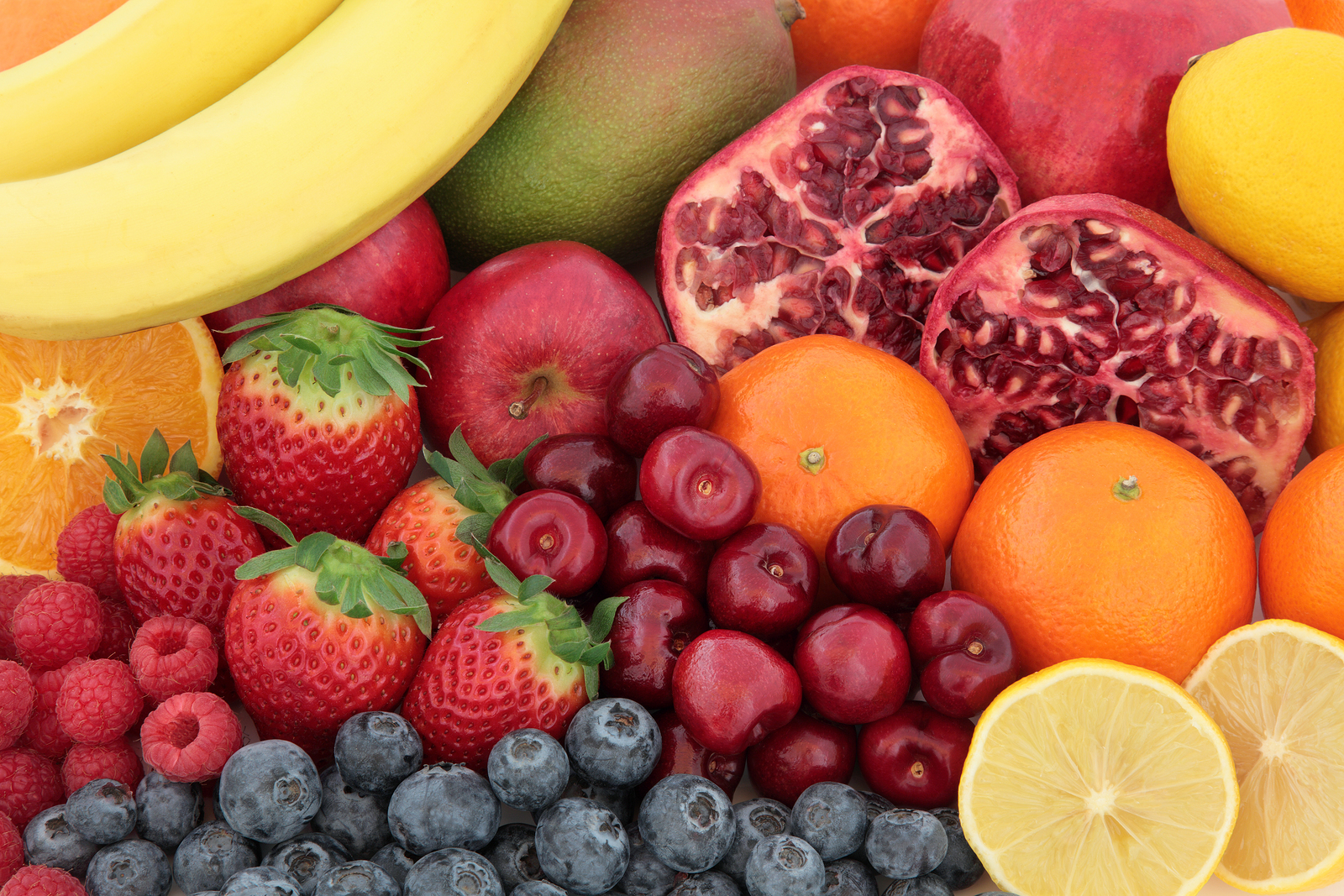Are superfruits really as good for you as it’s claimed?
Are tomatoes likely to reduce heart disease? Can eating avocados lower blood pressure? Let’s find out if these superfruits live up to the hype.
Looking at the superfruit phenomenon
A superfruit is a term, made popular in the media, for a collection of fruits that have extremely high levels of vitamins, all of which are supposed to have health-promoting properties. It may sound confusing and may even leave you thinking that any illness can be cured just by consuming large quantities of one particular food.
But can you really reduce your risk of disease or improve your physical and emotional health by eating a superfruit? These fruits may be nutritious and jam-packed with vitamins but are they indeed superfruit?
Superfruits should be on the menu
There have been some bold statements made regarding the beneficial properties of superfruits but many of us are unlikely to believe that one individual superfruit will stop us putting on the pounds while another will make us look younger.
However, if eaten as part of a balanced diet, all the foods under the superfruits umbrella that we have studied are certainly healthy for us. Most have amazingly high levels of vitamins and are nutritionally very good for us. They also provide a fantastic healthy alternative to the contents of the biscuit tin!
So even if you don’t pay any heed to the outrageous claims made regarding superfruits do still eat your 5 a day, as it has been proven to be the best way to maintain a healthy heart and keep a healthy weight.
Let’s consider the reality versus the hype
Goji (also known as wolfberry)
The hype – the goji berry has been called a food phenomenon and has been associated with some amazing health claims, such as improved longevity and eye health.
The truth – goji berries are certainly high in antioxidants, contain lots of vitamins including A, B, C and E, and are very tasty, however, research is inconclusive with regards to longevity and eye health.
Tomatoes
The hype – it has been said that tomatoes can prevent strokes, help against cancer and can keep osteoporosis at bay.
The truth – although tomatoes are very healthy, contain antioxidants and are a fabulous source of vitamin C, studies have not yet proven that consuming tomatoes will reduce these health risks.
Avocado
The hype – the claim is that avocados are amazing for your skin and may help to prevent cancer.
The truth – vitamin E helps to maintain healthy skin and avocados have it in abundance but if you only eat avocados and neglect to eat the rest of your five a day then your complexion is unlikely to improve. The link to warding off cancer is tenuous but scientists do believe the avocado stone contains a compound that may help to develop a new treatment for leukaemia but eating avocados alone will not avert or combat illness.
Acai berry
The hype – it has been said that eating acai berries can prevent you from putting on weight
The truth – unfortunately scientists have not yet found a natural way of neutralising those extra calories, and eating acai berries are not likely to help with weight gain.
Blueberry
The hype – the claim is that eating blueberries can help against heart disease, fight cancer, and help with memory loss
The truth – research is still inconclusive. Even though blueberries are nutritious, packed with vitamin C and antioxidants, there is no firm evidence that blueberries can protect your heart, prevent cancer or help with any brain function.
Pomegranate
The hype – it has been said that pomegranates can delay cancer of the prostate and avert heart attacks
The truth – there have been some studies carried out in this area and although it is early days, it’s looking promising that pomegranate juice might be able to slow prostate cancer. However, further research has to be undertaken before this can be proven. With regards to a connection between pomegranate and the prevention of heart attacks, no research has yet proved conclusive.
Pomegranates are good and healthy for you as they are packed with vitamins and fibre.
Grapefruit
The hype – grapefruit can stop you from putting on weight and may help prevent the onset of diabetes. It has also been said that women have less risk of a stroke if they eat grapefruit.
The truth – there has been a study undertaken on mice that showed consuming grapefruit slowed down weight gain and kept blood sugar levels even. However, it has not yet been possible to conclude the same in humans. In addition, there is no conclusive evidence that proves the eating of grapefruit by women reduces the chances of a stroke occurring.
However, as with all the above fruits, grapefruit is a healthy choice and contains excellent levels of vitamins. Consuming only 100g will give you half your recommended daily dose of vitamin C and even a quarter of your vitamin A.
Disclaimer
All content on Silversurfers.com is provided for general information only, and should not be treated at all as a substitute for the medical advice of your own doctor or any other health care professional. Silversurfers will not be responsible or liable for any diagnosis made by a user based on the content on www.silversurfers.com and we are also not liable for the content of any external websites or links from or to Silversurfers to any other websites. Please always consult your own doctor if you’re in any way concerned about any aspect of your health.
Melina - Assistant Editor
Latest posts by Melina - Assistant Editor (see all)
- Banana bread with SunGold kiwis - February 20, 2025
- A tribute to Bob Marley - February 4, 2025
- Going to Work on an Egg! - January 29, 2025
- The Very Best of Petula Clark - January 14, 2025
- 50 Years of Coat Trends - January 12, 2025




















